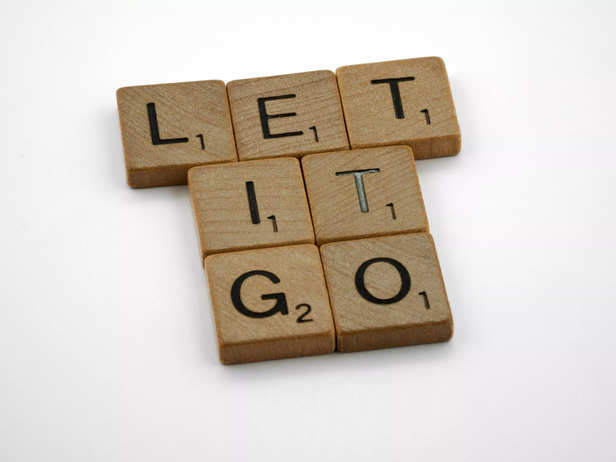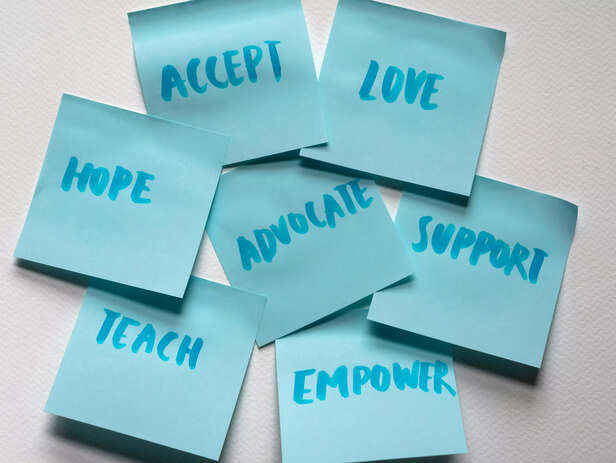When You’re Broken Inside But Can’t Show It: The Gita Knows
Riya Kumari | Jan 21, 2025, 23:54 IST
( Image credit : Timeslife )
What if the pain you’re trying so hard to push aside could be released, not by force, but by allowing it to dissolve in the same way a storm fades after a while, leaving behind calm? This is where the Bhagavad Gita comes in, not as a quick fix, but as a guide that gently suggests a different approach to pain and hurt—one that doesn’t demand you force it away, but one that asks you to acknowledge it and then, when you’re ready, let it go.
There’s a kind of pain that settles deep inside, a silent ache that doesn’t even ask to be acknowledged. It’s not the kind of hurt that’s easy to talk about—it doesn’t come with bruises or scars anyone can see. It's the invisible kind, the one that twists quietly inside your chest, the kind that makes you forget what it feels like to be whole. You may not even be able to name it. It doesn’t wear a label. But it’s there, lodged somewhere between who you were before and who you are trying so hard to be now. And maybe, just maybe, you’re carrying it alone. Maybe you’ve even told yourself that it’s easier to just move forward, to ignore it, to be strong, and to keep going—after all, life never waits.
The Courage to Let Go

In the Bhagavad Gita, Lord Krishna tells Arjuna, a warrior filled with doubt and sorrow, that he is not defined by his pain, his fears, or even his past actions. Instead, Krishna speaks to a deeper truth: there is something inside us, beyond the hurt, that is untouched by anything the world throws at us. This part of you doesn’t need to hold on to the pain to survive—it’s beyond all that.
But acknowledging that you’re hurt? That’s hard. It’s like standing in the middle of a storm and pretending the rain doesn’t matter, or looking at a bruise and telling yourself it doesn’t hurt. It’s easy to ignore what’s inside. It's easier to pretend it doesn't exist, because facing the wound feels like facing something much bigger than you’re ready to confront. But sometimes, acknowledging the pain is the first step in letting it go. Krishna’s message is simple but profound: don’t allow your circumstances, your pain, or your struggles to define who you are. You are not the hurt, nor are you the fear. You are not the anger, nor the resentment. You are something deeper, something beyond the transient storms of life.
The Power of Detachment

Now, I know what you’re thinking: “Detachment? How does that even work when it feels like the world has a grip on me that I can’t escape?” Here’s the thing about detachment, as Krishna teaches: it’s not about running away from your emotions or pretending they don’t exist. It’s about not being owned by them. It’s about recognizing that your heart might ache,your soul might feel heavy, but that doesn’t mean you have to carry the weight forever. Pain comes, but it doesn’t have to stay.
Detachment is about allowing yourself to feel, but not allowing those feelings to decide who you are. It’s about acknowledging that while pain is real, it is not permanent. Your capacity for healing is real, too, even when you don’t feel it. You don’t need to pretend like everything’s fine. But, as Krishna says, do not let the pain define your next step. Don’t let it cloud the path you are walking toward. The pain will come, and it will leave, but your journey is bigger than that moment.
The Gift of Acceptance

There’s a quiet wisdom in accepting the hurt—not as something to fix or hide, but as something to be present with, something to acknowledge, and something to heal. You don’t have to have all the answers right now. You don’t need to figure it all out in a day, a week, or even a year. Just by gently acknowledging the wound without judgment, without shame, you begin the process of healing. In the Gita, Krishna speaks to Arjuna about action, but it’s not about action for the sake of doing something—no, it’s action born from a place of clarity, of stillness.
When you act from a place of stillness, the pain doesn't control your decisions; you do. Healing is a journey, not a race. So, as you walk this path, remember: you don’t have to have it all figured out. It’s okay to acknowledge your hurt, to give yourself space to heal. Just know that you are bigger than your pain. And with time, as Krishna might say, you’ll find your way through it. One step at a time, one breath at a time, until you realize you’ve healed in ways you couldn’t even imagine.
You Are Not Alone

Sometimes the pain feels too much, too overwhelming to handle. But you are not alone in this. The Gita teaches us that we have an inner strength, one that is always available to us. It’s the same strength that has carried you through everything you’ve survived up to this point. It’s the strength that whispers to you in moments of stillness, reminding you that no matter how deep the hurt, you are still whole. Your journey, however messy it feels right now, is leading you to a place where you will find peace. It might take time, but peace doesn’t come by holding on to the hurt. It comes by letting it go, bit by bit, with kindness to yourself. By giving yourself permission to heal.
Krishna’s guidance is not about forcing a change, but about accepting where you are, feeling what you feel, and knowing that in time, the burden you carry will become lighter. Just as the storm eventually clears, so too will your heart find its calm. It may not be immediate, and that’s okay.
The Courage to Let Go

Let go
( Image credit : Timeslife )
In the Bhagavad Gita, Lord Krishna tells Arjuna, a warrior filled with doubt and sorrow, that he is not defined by his pain, his fears, or even his past actions. Instead, Krishna speaks to a deeper truth: there is something inside us, beyond the hurt, that is untouched by anything the world throws at us. This part of you doesn’t need to hold on to the pain to survive—it’s beyond all that.
But acknowledging that you’re hurt? That’s hard. It’s like standing in the middle of a storm and pretending the rain doesn’t matter, or looking at a bruise and telling yourself it doesn’t hurt. It’s easy to ignore what’s inside. It's easier to pretend it doesn't exist, because facing the wound feels like facing something much bigger than you’re ready to confront. But sometimes, acknowledging the pain is the first step in letting it go. Krishna’s message is simple but profound: don’t allow your circumstances, your pain, or your struggles to define who you are. You are not the hurt, nor are you the fear. You are not the anger, nor the resentment. You are something deeper, something beyond the transient storms of life.
The Power of Detachment

Cry
( Image credit : Timeslife )
Now, I know what you’re thinking: “Detachment? How does that even work when it feels like the world has a grip on me that I can’t escape?” Here’s the thing about detachment, as Krishna teaches: it’s not about running away from your emotions or pretending they don’t exist. It’s about not being owned by them. It’s about recognizing that your heart might ache,your soul might feel heavy, but that doesn’t mean you have to carry the weight forever. Pain comes, but it doesn’t have to stay.
Detachment is about allowing yourself to feel, but not allowing those feelings to decide who you are. It’s about acknowledging that while pain is real, it is not permanent. Your capacity for healing is real, too, even when you don’t feel it. You don’t need to pretend like everything’s fine. But, as Krishna says, do not let the pain define your next step. Don’t let it cloud the path you are walking toward. The pain will come, and it will leave, but your journey is bigger than that moment.
The Gift of Acceptance

Accept
( Image credit : Timeslife )
There’s a quiet wisdom in accepting the hurt—not as something to fix or hide, but as something to be present with, something to acknowledge, and something to heal. You don’t have to have all the answers right now. You don’t need to figure it all out in a day, a week, or even a year. Just by gently acknowledging the wound without judgment, without shame, you begin the process of healing. In the Gita, Krishna speaks to Arjuna about action, but it’s not about action for the sake of doing something—no, it’s action born from a place of clarity, of stillness.
When you act from a place of stillness, the pain doesn't control your decisions; you do. Healing is a journey, not a race. So, as you walk this path, remember: you don’t have to have it all figured out. It’s okay to acknowledge your hurt, to give yourself space to heal. Just know that you are bigger than your pain. And with time, as Krishna might say, you’ll find your way through it. One step at a time, one breath at a time, until you realize you’ve healed in ways you couldn’t even imagine.
You Are Not Alone

Pray
( Image credit : Timeslife )
Sometimes the pain feels too much, too overwhelming to handle. But you are not alone in this. The Gita teaches us that we have an inner strength, one that is always available to us. It’s the same strength that has carried you through everything you’ve survived up to this point. It’s the strength that whispers to you in moments of stillness, reminding you that no matter how deep the hurt, you are still whole. Your journey, however messy it feels right now, is leading you to a place where you will find peace. It might take time, but peace doesn’t come by holding on to the hurt. It comes by letting it go, bit by bit, with kindness to yourself. By giving yourself permission to heal.
Krishna’s guidance is not about forcing a change, but about accepting where you are, feeling what you feel, and knowing that in time, the burden you carry will become lighter. Just as the storm eventually clears, so too will your heart find its calm. It may not be immediate, and that’s okay.
